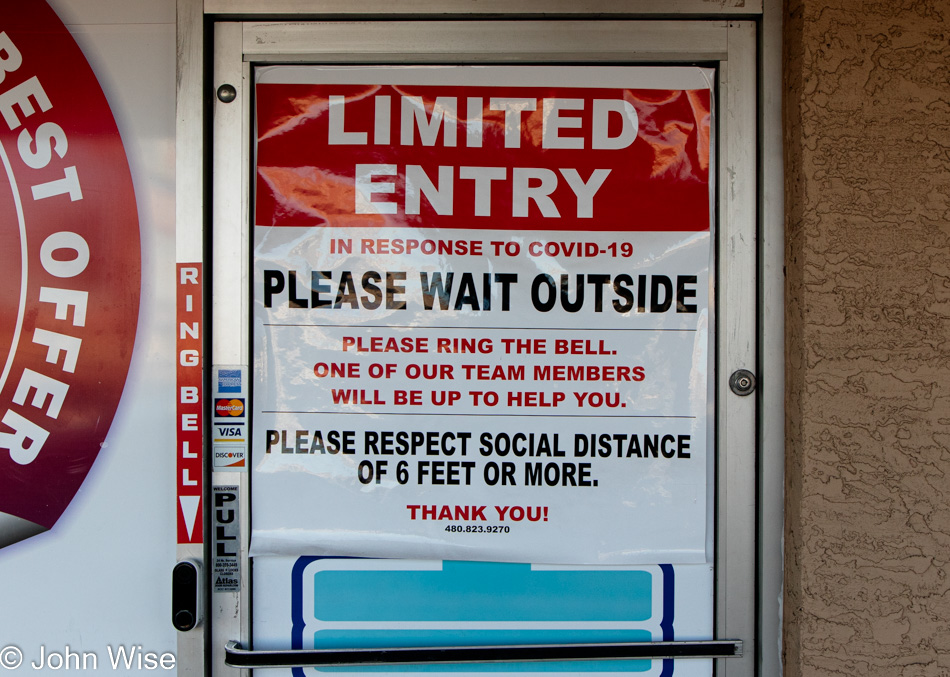
So, we’re out before the break of dawn, and Caroline is talking about a story she was reading regarding the placebo effect. In particular, she referenced how in a study about the efficacy of the antidepressant Paxil, the placebo was more successful. This leads us to talk about some of the people we know who suffer from depression, and that triggered memories of an article I read the evening before regarding Hannah Arendt and her writings about loneliness being a catalyst for accepting totalitarianism. Then, after making the leap from the placebo effect to totalitarianism, where do you go? To consumerism and choice, obviously.
The idea that loneliness has a connection to fascism was novel to me, but looking at our current political and social situation, it makes perfect sense. Who are the most dissatisfied among our population? The disenfranchised have not found economic relevance in an environment that rewards intellect more than brawn and manual labor. That situation often limits the scope of social contacts and potential partners extending a malaise deeply into our private lives, denying us rewarding, close relationships, and consequently delivering loneliness. What I’m implying is that after buying the big truck, fast car, or pricey motorcycle, the attention the person was looking for doesn’t arrive in a meaningful way. The grandiose television, amazing gaming console, pool, jacuzzi, or other accouterments fail to bring in those who might share in the investment of luxury. Maybe tattoos, piercings, particular clothing, or hairstyles will lure others who care about these attributes and bring sympathetic people into our orbit. Probably not. This person is developing external attributes and superficial, often antiquated traits from a different age.
When none of our consumption works to alleviate the pain of being so different than others, we fall deeper into feeling we are alone. We start to question our own value and begin the descent into crushing loneliness. Over time, we grow increasingly afraid of others and the potential for rejection. This then got me thinking about how we accumulate all this stuff and are still unhappy. Worse, though, is when we enter into a relationship and still find we are dissatisfied or lonely, though now we attribute it to depression and that with some medications, we’ll be just fine. We do not identify the underlying cause of our mental illness and instead sink further into fear and isolation.
By this time, we are well conditioned to believe that part of the malaise is related to not having exactly the car we want, maybe the television isn’t big enough, we aren’t married to the most beautiful, sexy, or strong enough person. So we go shopping as if it’s the elixir that will soothe our wounds and fix our problems. If my truck was higher, the motorcycle louder, the caliber of the gun larger, or maybe a 15″ subwoofer would make the TV give me the experience I need to find happiness. None of this can work because, at the core, we are lonely.
My belief is that we are lacking intimacy. Not the kind of intimacy found when nestled in the embrace of sex but the intimacy known to those who have come to a greater understanding of others, their spouse, and themselves. In this regard, sex is irrelevant. Good sex is like good food; tomorrow, you’ll need more, but that hamburger is never going to offer you a satisfying life, nor will sex. Intimacy is the primary path to living a good life, and again, I don’t mean sexual intimacy.

I’ve been trying to understand myself for more than 40 years now. I’m curious about the path my wife is on and how we figuratively and literally travel through life together, trying to discover the things we share experientially. Along the way, we’ve had numerous people compliment us on what a cute couple we are, but what are they really acknowledging? They are witnessing our intimacy as we appear to them as a symbiotic couple. How is it that they can pick up on our comfort with each other? I’m certain that, like us recognizing people who are together but not really together, as in they are obviously a couple but not in an intellectually intimate way, they are seeing something in how we relate and smile at one another that speaks volumes about our nature. That nature only slowly came to us the further we have gone trying to know ourselves and each other, and that has only happened due to our deep-rooted curiosity to continuously seek knowledge.
Learning really difficult stuff, be it emotional or educational, followed by introspective thinking about how you encountered it, will have you questioning what your blocks are and why you might feel you are stumbling. If you are looking primarily for sex in a relationship, you might easily find that, but unless you are exploring and learning together, real intimacy will not be built. When trying to understand and relate to others, we encounter introspective thinking, questioning how and why we feel or respond to each other in the way we do. At the point we engage with this inner dialog, we can choose to see progress in getting to know ourselves better, or we can externalize our failures of relating to someone or something by blaming others. It is not that the author of a philosophical book is difficult to understand it is that we do not have the tools honed for comprehending the writing. Learning to play an instrument is hard for everyone, and progress is often slow, but confronting your own weakness can lead to greater mastery over time; why should your personal relationships with others or yourself be different?
Then there’s the conflict with too much choice. As a society, we feed the neurosis that something better is just around the corner. With a marketplace mentality, if a husband or wife isn’t satisfying our deeper needs, it must be because we didn’t find the right one, or maybe we are driving the wrong car or living in too small a home in the wrong neighborhood. So we go shopping for something or someone new to fill the void of what is ultimately loneliness. Never do the advertisements tell the viewer to invest in themselves by reading a book or spend some time alone in nature questioning why they believe what they think they believe. Your happiness is not a six-pack of beer with your buddies while watching others participate in life; not to imply that for the well-adjusted, this wouldn’t contribute to their happiness, but in many situations, I’d say that is only one small part of a well-balanced life that is exploring intimacy.
When presented with limited choices, we must choose and often accept that we cannot keep sampling an infinite supply of possibilities. If we are cognizant of this equation, we can recognize that we must find compromise with those around us instead of just moving on with the idea that someone new will fill our emptiness. As a poor example, when we stay at a hotel and open the soap and shampoo that have been left for us, we typically don’t question it and instead just use it. Compare this to when we are at the store and need to choose between 100 different brands and types of shampoo.
As children, before our egos kicked in, we tried using language to the best of our limited ability while others were nudging us to make ourselves better understood. We worked hard to master the inner and outer dialog of communication so we could fit in with our friends and family. We thrived in that community with affirmation that we were relating to and honoring them. And then something happened. We change and are afraid that our inner turmoil is unique to ourselves and embarrassing should anyone else know our uncertainty. Instead of talking and sharing with others, we internalize the struggle and start making consumption bargains with ourselves this or that will bring us back into balance, but that doesn’t ultimately work. It is at this point, that we should be brought into deeper, more contemplative thinking, study, and conversation. The inability to alleviate the awkwardness and guilt of becoming a human in discovery is a crime against humanity and sets a potentially life-long path into ruination and self-abuse. Not having the vehicle of sharing and finding intimacy leads us down the most unhealthy of paths. This is where loneliness really starts to thrive.





